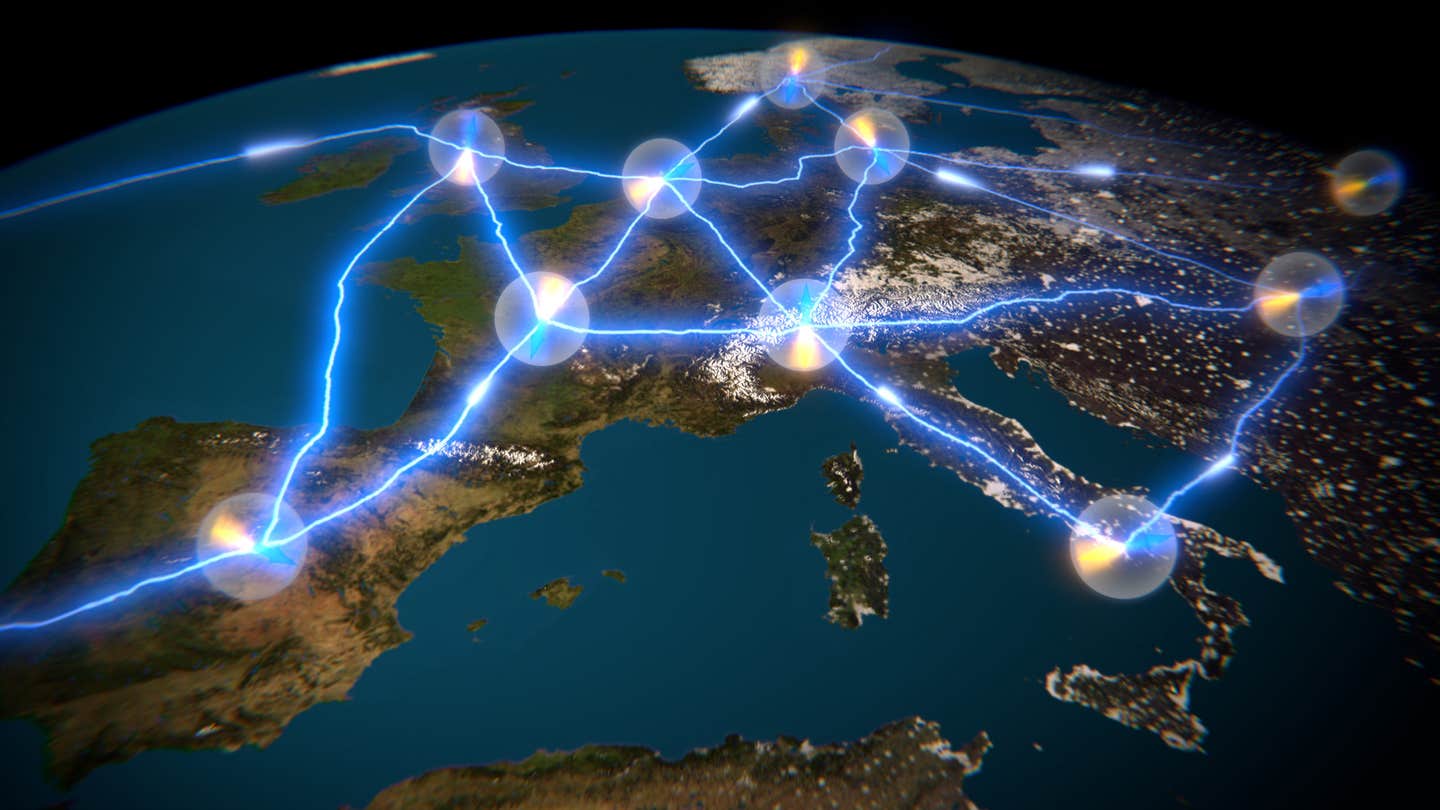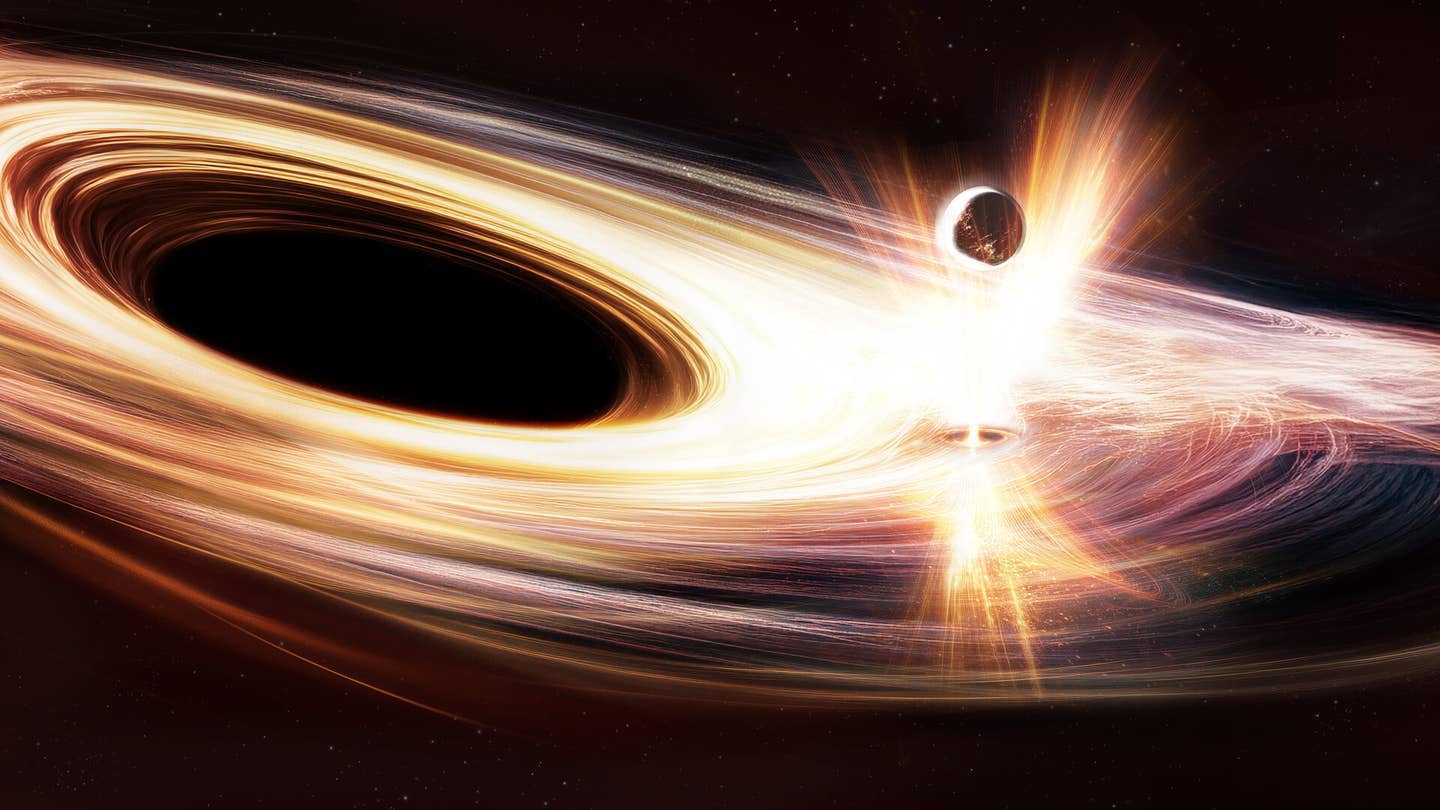Quantum teleportation has begun to change the world
Quantum teleportation, once confined to the pages of science fiction, is steadily becoming a tangible scientific achievement.

Researchers have uncovered novel ways to transmit information instantly across vast distances, with potential to revolutionize computing, communications, and cryptography. CREDIT: CC BY-SA 4.0)
Quantum teleportation, once confined to the pages of science fiction, is steadily becoming a tangible scientific achievement. Advances in quantum mechanics over the last decade have transformed teleportation from a theoretical concept into an experimental reality.
These breakthroughs have revealed innovative methods for transmitting information instantaneously over vast distances, offering transformative possibilities for computing, communication, and cryptography. Scientists are now closer than ever to bridging the gap between imagination and reality in this cutting-edge field.
The Science of Quantum Teleportation
At its core, teleportation in the quantum world isn’t about physically transporting objects or people, as popularized by franchises like Star Trek. Instead, it involves transmitting quantum states—essentially the fundamental properties of particles like electrons or photons—without physical movement of the particles themselves.
This is made possible through quantum entanglement, a phenomenon where two or more particles become so interconnected that the state of one directly influences the other, no matter how far apart they are.
In April 2022, a groundbreaking study led by Dr. Jian-Wei Pan, a physicist at the University of Science and Technology of China, reported a new record in quantum teleportation distance. Using entangled photons, Pan and his team successfully transmitted quantum information over 1,200 kilometers via satellite.
Published in Physical Review Letters, the study marks a significant leap from earlier experiments that were limited to tens or hundreds of kilometers.
“We’ve demonstrated that quantum entanglement can be preserved over incredibly long distances using satellite-based links,” said Dr. Pan. “This paves the way for global-scale quantum communication networks.”
Related Stories
Entanglement at the Edge of Possibility
The key to the experiment’s success lies in the use of Micius, a Chinese satellite launched in 2016 specifically for quantum experiments. Micius creates pairs of entangled photons and transmits one photon to a ground station while the other remains aboard the satellite. When the photon on Earth is manipulated, its twin in space instantly reflects the same change, proving that entanglement holds even over immense distances.
In a complementary study published in Nature, researchers at Delft University of Technology in the Netherlands achieved high-fidelity teleportation of quantum states between two network nodes without losing information. Using nitrogen-vacancy centers in diamonds to create and store quantum bits (qubits), they demonstrated a teleportation accuracy rate of 90%, a record for terrestrial quantum networks.
“Achieving such a high level of accuracy shows that practical quantum networks are feasible,” said Dr. Ronald Hanson, the project’s lead scientist. “This brings us closer to building a quantum internet capable of unhackable communication.”
Overcoming Noise in Quantum Teleportation
A major hurdle in quantum teleportation is noise—unwanted disturbances that can disrupt the transmission of quantum information. In May 2024, researchers from the University of Turku in Finland and the University of Science and Technology of China in Hefei made a groundbreaking discovery: certain types of noise can actually enhance the quality of quantum teleportation.
By utilizing multipartite hybrid entanglement, which involves entangling different physical properties of particles, they achieved near-perfect teleportation even in noisy environments. Professor Chuan-Feng Li from the University of Science and Technology of China stated, "This is a significant proof-of-principle experiment in the context of one of the most important quantum protocols."
Building on this, in June 2024, the team led by Academician Guangcan Guo, achieved a teleportation fidelity of nearly 90% despite environmental noise. They employed a novel method involving hybrid entanglement between photons' polarization and frequency, effectively countering noise interference. This advancement is a significant step toward practical quantum communication systems capable of operating in real-world conditions.
Optimal Quantum Teleportation Fidelity in Arbitrary Dimensions
In November 2024, researchers from the Beijing University of Posts and Telecommunications and the University of Science and Technology of China published a study in Physical Review Applied detailing a general approach for achieving optimal quantum teleportation fidelity across various dimensions.
They experimentally verified their method using three-dimensional quantum teleportation, demonstrating its validity and paving the way for more complex quantum communication protocols.
Quantum Routing with Teleportation
Another notable development in September 2024 involved quantum routing using teleportation. Researchers from the University of Maryland and the University of Cambridge published a study in Physical Review Research exploring the implementation of arbitrary permutations of qubits under interaction constraints.
They demonstrated that by distributing entanglement and using local operations and classical communication (LOCC) to perform quantum teleportation, it's possible to achieve speedups over traditional swap-based routing methods. This finding has significant implications for the efficiency of quantum computing networks.
Real-World Implications: From Security to Computing
The implications of these advances are profound. Quantum teleportation could lead to the development of quantum networks that transmit data with unparalleled security. Traditional encryption methods rely on complex algorithms that can, in theory, be cracked by sufficiently advanced computers. Quantum communication, however, uses entangled particles to detect any eavesdropping, as any interference disrupts the entangled state and alerts the sender and receiver.
For governments and industries reliant on secure communication—such as banking, healthcare, and national defense—this could mean an unprecedented level of data protection. Already, the European Union’s Quantum Internet Alliance is investing millions into building a continent-wide quantum communication network by 2030.
Beyond security, quantum teleportation could supercharge quantum computing, where information is processed exponentially faster than in classical computing.
A study from the University of Chicago, led by physicist Dr. David Schuster, revealed that teleportation can efficiently link quantum processors across distances. Published in Nature Communications, the research outlines a method for scaling up quantum computers by connecting processors via entangled photons. This overcomes the limitations of physical wiring, enabling more powerful and interconnected systems.
“The teleportation of quantum states between processors is a major step toward creating a scalable quantum computer,” said Dr. Schuster. “This technology could revolutionize industries from drug discovery to artificial intelligence.”
Challenges on the Road Ahead
Despite these successes, quantum teleportation faces significant hurdles. One major challenge is decoherence—the loss of quantum information due to environmental factors like temperature fluctuations or electromagnetic interference. This makes maintaining entanglement over long periods a technical feat.
Additionally, the infrastructure required for large-scale quantum networks remains in its infancy. For instance, transmitting photons over optical fibers leads to signal loss over distances longer than 100 kilometers, which satellites like Micius help mitigate. However, creating a global quantum network will require a hybrid approach, combining satellite links with terrestrial fiber-optic cables.
Cost is another consideration. Building and maintaining quantum infrastructure is expensive, with many projects reliant on government funding. For example, the U.S. National Quantum Initiative, launched in 2018, has allocated over $1 billion to quantum research, including teleportation. Similar investments are being made by the European Union and China.
The Bigger Picture: A Quantum Future
The long-term potential of quantum teleportation extends beyond secure communication and computing. In theoretical physics, teleportation experiments are deepening our understanding of the universe.
Recent research from the California Institute of Technology (Caltech) suggests that teleportation could provide insights into the nature of spacetime and black holes. Dr. John Preskill, a quantum physicist at Caltech, posits that quantum entanglement may hold clues to resolving the "information paradox" in black holes.
“These experiments are not just technological feats,” said Dr. Preskill. “They’re also windows into some of the deepest questions about the universe.”
Moreover, teleportation could eventually influence energy transmission. While the concept of "beaming" energy via quantum methods remains speculative, early studies indicate it may be possible to teleport energy states in specific conditions. This could open doors to energy distribution systems that are far more efficient and less wasteful than current grids.
Transforming the Possible
What does all this mean for you? Quantum teleportation is no longer a futuristic fantasy but a tangible technology that’s reshaping how information—and perhaps one day energy—is transmitted. The strides made by scientists like Dr. Pan, Dr. Hanson, and Dr. Schuster are laying the foundation for a future where secure global communication, superpowered computing, and even new forms of energy transmission become the norm.
As the barriers of distance and speed continue to crumble under the weight of these discoveries, the real-world applications of teleportation are beginning to take shape. While many challenges remain, the promise of this technology is immense.
Teleportation may not yet be ready to transport people, but its potential to transform society is every bit as exciting as the science fiction dreams it once inspired.
Note: Materials provided above by The Brighter Side of News. Content may be edited for style and length.
Like these kind of feel good stories? Get The Brighter Side of News' newsletter.
Joseph Shavit
Head Science News Writer | Communicating Innovation & Discovery
Based in Los Angeles, Joseph Shavit is an accomplished science journalist, head science news writer and co-founder at The Brighter Side of News, where he translates cutting-edge discoveries into compelling stories for a broad audience. With a strong background spanning science, business, product management, media leadership, and entrepreneurship, Joseph brings a unique perspective to science communication. His expertise allows him to uncover the intersection of technological advancements and market potential, shedding light on how groundbreaking research evolves into transformative products and industries.



